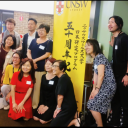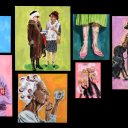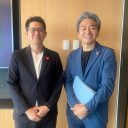第112回
Japanese Culture
オージーに英語で説明してみよう!
日本人には常識でも、文化の違うオージーにはイマイチ伝えづらい……。そんな時にぴったりの表現や話の流れをご紹介。
文:池田俊一 オーストラリア国立大学アジア・太平洋カレッジ日本センター
協力:池田澪奈
What is seishun?
「青春」って何?
「先輩が『この曲を聞くと青春を思い出す』と言っていたけれど、これってどういう意味?」
Aussie: What is he reminiscing about?
Aussie: Oh, so the teenage years then.
You: Yes, it can certainly be used to describe the high school and college periods, but 青春 can also be used to describe the time in university/early twenties as well.
Aussie: So basically the “young, wild and free” days, eh?
You: Pretty much! 青春 is not a word which gets used to describe life after your mid-twenties, though. And, oftentimes, it will be paired with the word 時代 (jidai) meaning ‘era’ to make 青春時代 (seishun jidai) – you might hear this word more from older people, who use it to describe their heydays of youth.
Aussie: Can the word be used to describe both the good and bad things which might’ve happened during 青春時代?
You: Actually, Japanese people use this term with a certain amount of nostalgia and fondness. The word itself holds positive connotations, so say if you wanted to describe having a dull 青春時代, then you would need to add the negative describing words, because by default, it’s used in the affirmative.
Aussie: So, I guess I could say something like… My 青春 was mostly spent playing footy. I never really studied, because all I ever wanted to do was to be outside, kicking around the ball! Sure, I might’ve missed out on some academic stuff, but even if I could go back in time, I’d do it all over again.
You: T hat sounds very much like you. My 青春 was listening to lots of music, and learning to play the bass guitar. I was never good at it, but I channelled a lot of my teenage angst and energy into it. My friends and I would dream of becoming the next biggest rock stars, haha.
Aussie: Everyone remembers the happy days of their youth as their halcyon days.
You: Certainly. It’s crazy to think it’s so long ago now, even though it only feels like yesterday.
説明する時のポイント
「青春」という言葉は、元々「春」を意味する言葉で、人生の春に例えられる時期、つまり、年の若い時代のことを指すと教えてあげよう。対話文にもあるように、どちらかと言うと「青春」を過ぎた世代の人が、自分の10代から20代にかけての青春時代を振り返って懐かしむ時に使われる言葉だと説明しておこう。夢と希望に満ち溢れ、大志を抱いて人生という大海原に勇ましく船出したころのことを思い出す人もいれば、さまざまな事情から、辛くて苦しい時期を過ごしたことを苦々しく記憶の片隅に留めておく人もいるかもしれない。いずれにしても、読書に勤しみ、交友に励み、スポーツや課外活動に熱中し、恋愛を経験するなど、その後の人生の土台を形作る時期と捉えている日本人が多いと付け加えておこう。もちろん、年齢に関係なく、青春を謳歌するという気概を忘れずに、ということも。
【単語・成句】
reminisce about ~ 楽しく思い出す
adolescence 思春期から成人期まで
high school and college periods 中学・高校時代
young, wild and free days 若く、奔放かつ自由な日々
be paired with ~ ~と対になって
heyday 盛り/絶頂/全盛期
nostalgia 郷愁/ノスタルジア
fondness 愛着
connotation 意味合い/言外の意味
by default 標準/規定/定番
in the affirmative 肯定的に
footy (=football) フットボール
stuff (~関係の)もの
channel ~に向ける/注ぐ
angst 不安/心配/苦悩
dream of ~ ~を夢見る
halcyon days 長閑な/平穏な時期
crazy to think 思えない/信じられない
【会話文で使える表現】
“might’ve (~ past participle verb)” という言い方は、「~だったかもしれない」という過去のことについて不確かな気持ちを表す時に使われる。
【例1】
“The government’s decision to scrap the submarine deal with France might’ve triggered
a lot more than what they had originally anticipated.”
「フランスとの潜水艦契約破棄という政府の決定は、フランスとの関係に予想した以上の深刻な問題を引き起こしたかもしれない」
【例2】
“I might’ve said something hurtful to Jen, because she’s been avoiding me lately.”
「ジェンを傷付けるようなことを言ってしまったようで、最近避けられているんだ」
【例3】
“Where are the keys?” “I’m not sure, I might’ve dropped them in the car.”
「鍵は?」「さあ、よく覚えていないが、車の中に落としたかもしれない」












You: Ah, yes. 青春 (seishun) is a word which translates to ‘springtime of your life’, meaning your youth or adolescence. It’s that period in your life when you’re not really a child anymore, but not yet an adult, either.